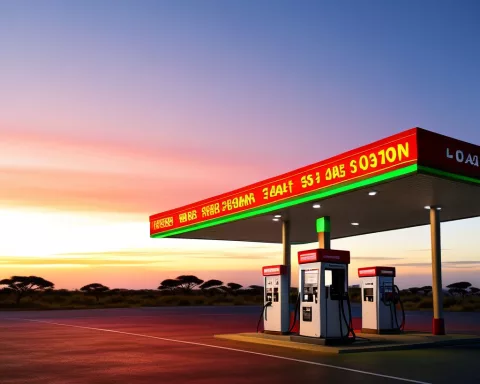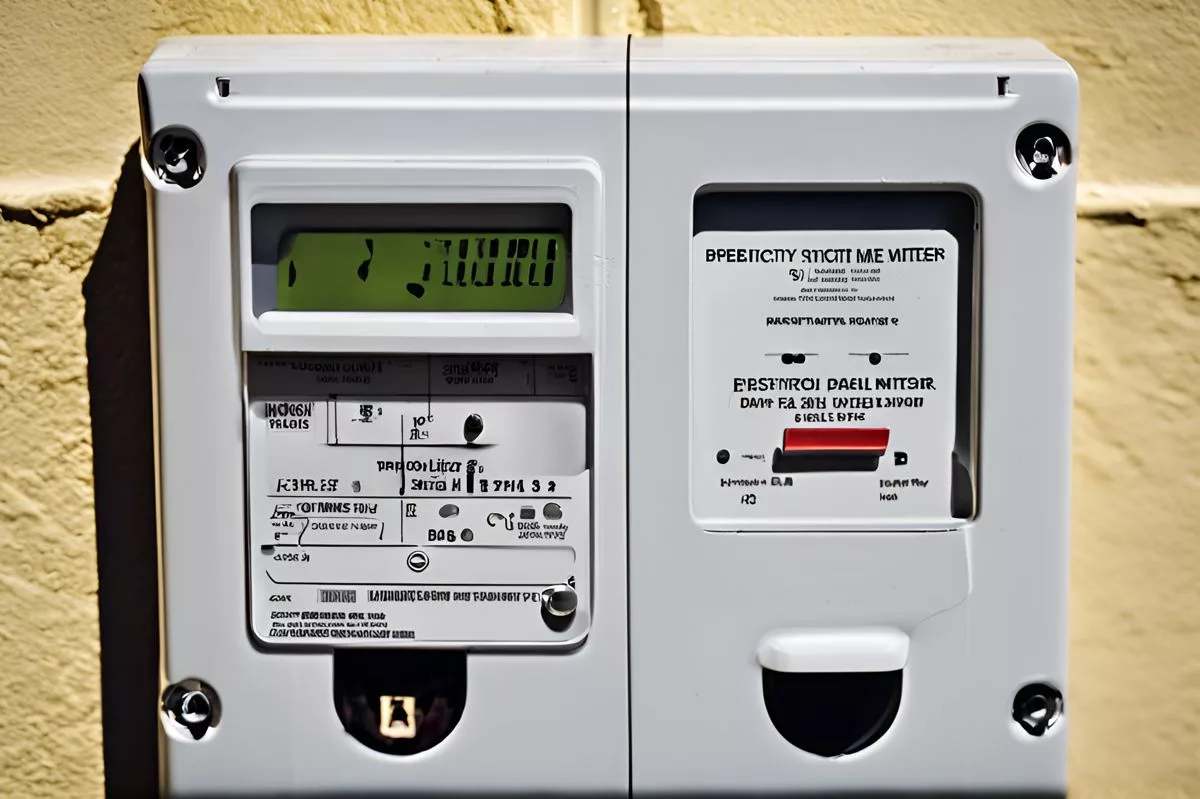Fuel prices in South Africa have recently dropped, bringing some much-needed relief to shoppers and businesses. Over five months, prices fell by about R4, with petrol and diesel seeing reductions between R1.06 and R1.14 per liter. This decrease means lower transportation costs, which could help reduce the prices of everyday items. However, challenges remain, especially for the taxi industry, which struggles to stay profitable without government support. As we celebrate this decline, it’s also a reminder to think about our future and how we can use energy more sustainably.
What are the recent changes in fuel prices and their economic impacts?
The recent decline in fuel prices in South Africa offers relief to consumers and businesses. Prices have dropped approximately R4 over five months, including reductions in diesel and petrol by R1.12 to R1.14 per liter, positively affecting transportation costs and potentially lowering prices for everyday goods.
Economic Impacts of Fuel Price Fluctuations
In a world marked by economic instability and the intricacies of global markets, the recent drop in fuel prices brings relief to many. This downward trend follows a peak in May 2024, when fuel prices soared to R25.49 per liter, reflecting the anxieties of a world facing economic uncertainty. The decrease in prices, marked by five consecutive reductions, offers a sense of relief that resonates across various sectors, affecting everything from transportation costs to the prices of everyday goods.
Fuel is a fundamental component of the global economy, and its journey from extraction to consumption weaves a narrative deeply entwined with human progress and industrial advancement. The Industrial Revolution, propelled by coal and oil, marked a significant transformation in technology and society, reshaping daily life and connecting people and places. Today, oil remains a crucial resource, though it faces a different set of challenges and opportunities in our modern world.
The recent decline in fuel prices, with a reduction of approximately R4 over five months, provides a welcome respite for consumers and businesses heavily reliant on transportation. The Department of Mineral and Petroleum Resources announced a decrease in diesel prices by R1.12 to R1.14 per liter and a reduction in petrol prices of around R1.06 to R1.14 per liter. Such changes can have a significant ripple effect on the economy, potentially lowering the costs of goods and services that are closely linked to transportation expenses.
The Complexities of Fuel in South Africa
The story of fuel prices is far from straightforward, with socio-political and environmental factors adding layers of complexity. In South Africa, the taxi industry exemplifies broader economic challenges. Despite falling fuel prices, the National Taxi Alliance, represented by spokesman Theo Malele, points out ongoing difficulties. The industry, lacking government subsidies, finds it hard to remain profitable amid changing fuel costs. Malele’s call for increased public transportation usage during October, designated as public transport month, highlights the environmental considerations at play. Public transport offers a viable path for reducing carbon emissions and addressing environmental concerns.
Globally, the oil market is an intricate system influenced by geopolitical tensions, production quotas, and economic policies. While the recent price decline provides immediate relief, it also carries the possibility of future increases. Experts warn against complacency, emphasizing the need for strategic planning and diversification in energy sources to mitigate the inherent volatility of oil markets.
South Africa’s geographical disparities in fuel pricing add another layer of complexity. Inland areas often face higher fuel prices than coastal regions due to logistical factors such as transportation and distribution challenges. This regional variation underscores the intricate logistics involved in fuel distribution, reminiscent of historical trade routes that shaped economies and cultural exchanges.
Strategic Planning and Environmental Considerations
Fuel price adjustments happen on the first Wednesday of each month, setting a rhythm that impacts not only pump prices but also broader economic dynamics. For motorists and businesses, these adjustments serve as indicators of economic health and tools for future planning. Beyond immediate economic impacts, fluctuating fuel prices prompt broader discussions about sustainability and energy’s future. International agreements like the Paris Agreement emphasize global commitments to reducing carbon emissions and transitioning to renewable energy sources. The pressure to innovate and adapt is both an economic and existential challenge as the world faces climate change and its far-reaching effects.
Within this context, the decline in fuel prices, while welcomed, sparks reflection on balancing long-term sustainability with short-term economic relief. The narrative of fuel, positioned at the intersection of history, economics, and environmental science, highlights the complexity and interconnectedness of modern life and global systems.
As society navigates this intricate dance of supply and demand, the stories of individuals and industries unfold, each contributing to a larger narrative that reflects the challenges and triumphs of our time. The journey from oil wells to gas stations is not merely a logistical process but a rich tapestry of human endeavor, innovation, and resilience.
FAQ on Recent Fuel Price Declines in South Africa
What has caused the recent decline in fuel prices in South Africa?
The recent decline in fuel prices in South Africa is attributed to a drop of approximately R4 over five months, with petrol prices decreasing by R1.06 to R1.14 per liter and diesel prices by R1.12 to R1.14 per liter. This decrease was influenced by various economic factors, including fluctuations in global oil markets, which are affected by geopolitical tensions and production quotas.
How will the drop in fuel prices impact consumers and businesses?
The reduction in fuel prices is expected to lower transportation costs, which can lead to decreased prices for everyday goods and services. This relief is significant for consumers and businesses that rely heavily on transportation, potentially allowing for better pricing and improved profit margins.
What challenges does the taxi industry face despite falling fuel prices?
Despite the decline in fuel prices, the taxi industry in South Africa, represented by the National Taxi Alliance, continues to struggle due to a lack of government subsidies. The inability to remain profitable amid changing fuel costs highlights the need for increased public transport usage and support for sustainable transportation initiatives.
How does the geographical location affect fuel prices in South Africa?
Fuel prices in South Africa can vary significantly based on geographical location. Inland areas often experience higher fuel prices compared to coastal regions due to logistical challenges in transportation and distribution. This variation underscores the complexities involved in fuel distribution across the country.
What are the long-term implications of fluctuating fuel prices on sustainability?
While the recent decline in fuel prices provides immediate economic relief, it also raises important discussions about sustainability and energy transition. As global commitments, like the Paris Agreement, push for reduced carbon emissions, fluctuations in fuel prices urge individuals and industries to consider more sustainable energy sources and practices to mitigate future volatility.
When do fuel price adjustments typically occur in South Africa?
Fuel price adjustments in South Africa are made on the first Wednesday of each month. These adjustments reflect changes in global oil prices and serve as indicators of economic health, influencing planning for both motorists and businesses in their operational decisions.












